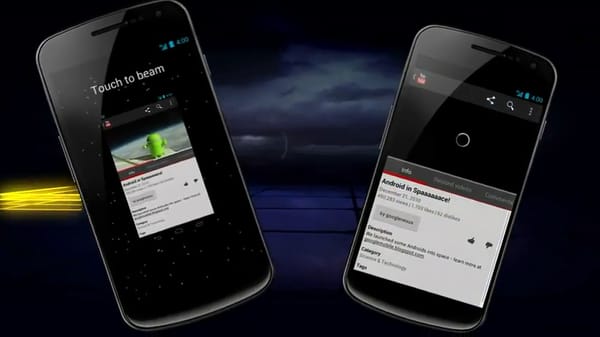Boosting mobile innovation
Kin-Hing Lo explores the revolutionary impact of mobile proliferation on our lives
As each second ticks away, there’s a quiet revolution going on in every town and every city across the globe. Mobile technology disrupts the way we live our lives, the way we communicate with others and the way we function as a society.
In the time it’s taken you to read just this sentence, over 3,000 mobile applications have been downloaded to handsets across the world. Many of these applications may just be pointless bird throwing, rope cutting and fruit slicing games but a growing number of innovative new applications are changing the way in which we communicate, shop and travel.
Freeing innovation
Just a couple of years ago, creating a new and innovative product to solve a problem would require you to design a bespoke piece of hardware, manufacture it, distribute it and retail it through a high street store or a mail-order catalogue. You’d need to find a designer, a manufacturer and suppliers for your components. Then you’ve got to find a distributor to take your product, a retailer willing to dedicate the shelf space to it and a marketing firm to promote it. The route from idea to marketplace was slow, expensive and risk-ridden: launching a new product to solve real world problems was a process accessible only to those with the deepest pockets and those willing to take the biggest risks.
The modern smartphone is a platform which democratises innovation by cutting the cost of development and the associated financial risk to almost zero. We can cut out manufacturing, design, distribution and retail – just write code, deploy it through an application store, make money and iterate. With a single piece of commodity hardware, it is possible to access realtime information from a huge array of local sensors such as GPS, a camera, microphone, accelerometer, compass and a barometer. Combine that with the ability for your smartphone to provide context (through your social networks and location) and the ability to pull in data from millions of sources online, all you need to do is to combine data from those sources in a useful way to solve a real problem and the hardware and APIs do the rest. With the ease of innovating on the smartphone platform, it’s no wonder the pace of innovation has been so quick.
Improving lives
In the UK, mobile applications have helped us to communicate with our peers around the world, to live healthier lives, saved us time and saved us money. ‘Google Translate’ and ‘Word Lens’ have helped us to traverse language barriers and to communicate with people regardless of whether or not we share a common language. ‘Transport for London’ and ‘Addison Lee’ have helped us to get home safely after a night out. Various GPS navigation apps save us time by routing us around traffic jams – traffic jams reported by other users of the application. Applications such as ‘ShopSavvy’ compare prices against other high-street shops and online stores so we don’t get ripped off.
The ‘Asthmapolis’ application helps asthma sufferers by tracking their symptoms over time, looking for a deterioration in symptoms and analysing where those symptoms occur so public health officials can find the source of the pollution. And there’s Lewisham Council who keep their streets clean with a mobile app for members of the public to report graffiti, fly-tipping and other environmental crimes.
Looking to the developing world, the promise for mobile technology to have a positive social impact seems to be even greater. Many developing countries currently lack the efficient physical infrastructure we take for granted (the roads, phone lines, GP surgeries and banks). Mobile technology can be deployed incredibly quickly in these countries as one mast covers a huge area – instantly giving the population access to services such as mobile banking, healthcare and trade.
Several short mobile phone calls will allow a farmer or a producer to determine the price he can sell his goods at different markets and to negotiate the best price without spending days making successive trips to different markets.

Mobile banking companies such as M-Pesa allows people to invest money for their future and to pay suppliers without a long journey to the bank whilst also eliminating the risks and costs of transporting physical money. Other apps such as EpiSurveyor help with disease monitoring: they allow physicians to monitor the spread of diseases in real-time without the delay introduced by sending and collating paper forms.
Mobile innovation
The potential to change the world and to make money in the world of mobile technology is unparalleled. The mobile application market is already worth $15bn annually and is only set to continue growing exponentially. Globally, the number of people with a mobile phone is set to pass 4.5 billion by 2012. Many of the next one billion people to be connected to a mobile network will reside in Asia, the Middle East or Africa – these are people who will be accessing the internet for the first time through their mobile phone.
As the UK struggles through our deepest recession to date, we should realise that long term economic growth only comes from making things that better other people’s lives. If I can produce a product which is worth £10 to you but only costs me £2 to produce, I could sell it for £5 and it’s a win-win situation. It’s only by creating real value that we can build a sustainable economy: speculating on the markets in an investment bank doesn’t provide this long term value and isn’t a sustainable model for the UK economy. The mobile industry is one which has a huge positive social impact as well as huge potential for new ideas.
Whether you’re an engineer or a scientist at Imperial, I believe the mobile industry provides a unique opportunity for you to develop the new products which benefit society with almost no cost and no risk to you. Take a look at the Android Developer website for example: it’s free to anyone interested and there are countless tutorials to get you started. With no investment required apart from your time, there’s little to lose.








